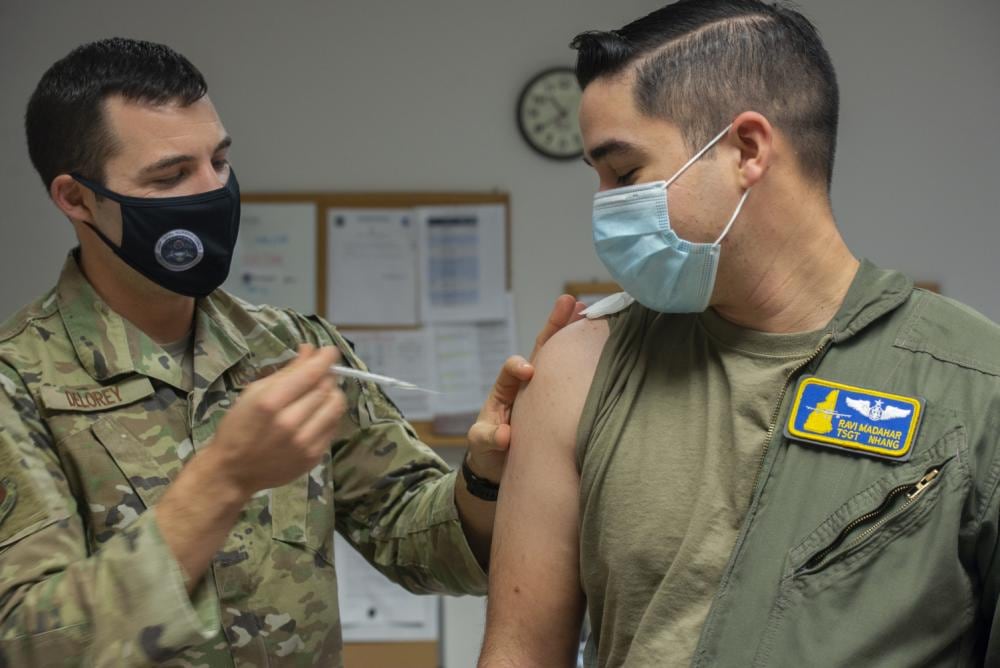SALEM, Ore. — Gov. Kate Brown is deploying Oregon National Guard members to help at hospitals that she says are under extreme pressure due to a COVID-19 omicron-fueled surge in hospitalizations.
A total of 1,200 Guard members will be deployed to more than 50 hospitals across the state, KATU-TV reported.
RELATED

“Fueled by the Omicron variant, current hospitalizations are over 700 and daily COVID-19 case counts are alarmingly high,” she said on Twitter, thanking Guard members, their families and their employers for this sacrifice and support.
“As they step up yet again, I am asking all Oregonians to continue to do your part. Get vaccinated, get boosted, wear your masks, and stay home when you are sick,” Brown said.
The Oregon Health Authority on Wednesday reported 47,272 new cases of COVID-19 from Jan. 3 through Jan. 9. That number is nearly six times higher than two weeks ago and three times higher than the August 2021 previous pandemic record for weekly cases, according to health officials.
There were also 486 new COVID-19-related hospitalizations last week, which is a 68 percent increase from the previous week, health officials said.
RELATED

Oregon has yet to see the peak of the omicron surge, per Oregon Health & Science University projections. The state is projected to hit about 1,650 omicron hospitalizations in the last week of the month, before rapidly falling to pre-omicron levels, The Oregonian/OregonLive reported.
State health officials also said Wednesday’s weekly outbreak report shows 128 active COVID-19 outbreaks in senior living communities and congregate living settings, with three or more confirmed cases and one or more coronavirus-related deaths.
